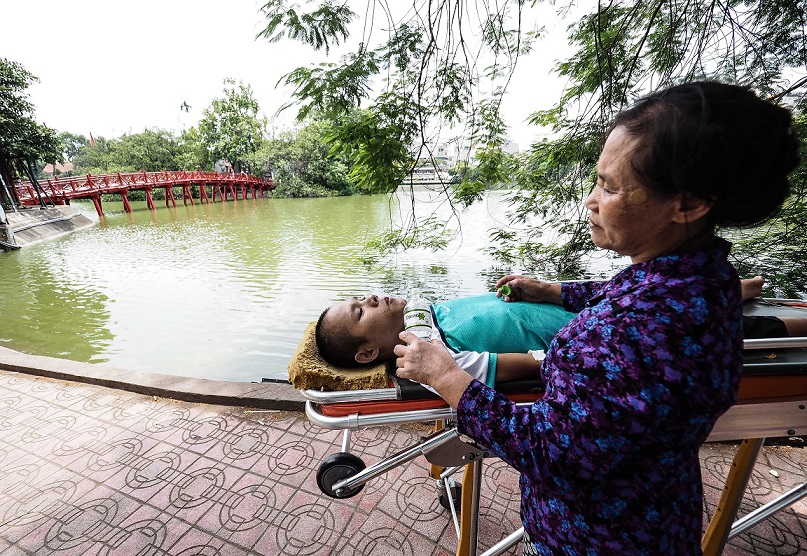A Vietnamese man who has spent the last 13 years in paralysis has requested that his head be transplanted onto a healthy body when head transplant techniques are made available in the Southeast Asian country.
Pham Sy Long, 28, from the north-central province of Ha Tinh, submitted a letter to the National Coordination Center for Organ Transplantation, asking to be considered for the procedure when it becomes available in Vietnam.
According to Cao Tien Sy, a legal official at the center, five similar requests have been submitted by other individuals to the organization.
All of the petitioners, sufferers of total paralysis, requested that their heads be transplanted onto new anatomies, Sy continued.
Trinh Hong Son, deputy director of the Vietnam-Germany Hospital in Hanoi, stated that the requested head transplantations might actually become a reality.
The surgical techniques are expected to be tested by international scientists and key doctors from Italy and Russia, among others, in 2017, Son said, adding that the team of experts would be asked to come to Vietnam and pass along their knowledge once they succeed.
According to the deputy director, one of the difficulties faced by experts has been on reconnecting the spinal cord of the head with the new body and testing whether the new fibers are compatible and able to co-exist in the newly formed individual.
Legal issues would not pose many challenges as current regulations do not indicate any guidance on the transplant of head and body, he continued.
There have been several debates on who would be considered the donor and receiver between the two people in the surgery, Son added.
Nguyen Huy Quang, head of the Department of Legal Affairs under the Ministry of Health, stated that the head giver would be in charge of the new identity as the brain controls all activities of the body.
However, new rules and amendments should be added to the current law for the type of unprecedented procedure, Quang affirmed.

Tran Thi Ha takes care of Pham Sy Long at the Hoang Kiem Lake in Hanoi on August 10, 2016. Photo: Tuoi Tre
Donating a body to science
Long can think and talk like other normal 28-year-olds despite his disability.
The Hanoi man was born healthy but lost feeling in his body after an accident that damaged his spinal cord in 2003.
“In 2007, I learned to write by holding a pen in my mouth and succeeded in creating my first painting in 2010, which I gave as a gift to my neighbor,” Long recounted.
He stated that he would donate his body to science if the transplant does not succeed.
Tran Thi Ha, Long’s mother, has been taking care of her son in every aspect of his life. She also took him to Hanoi to submit his request.
The mother asserted that she would support Long’s current and future decisions.
While foreign scientists have already succeeded in doing the surgery on mice, it can only be done on humans when the technique is perfected, doctors said.
In June 2015, Italian neurosurgeon Dr. Sergio Canavero unveiled plans to perform the first human head transplant, saying he believes he has a 90 percent chance of success, according to Reuters.
A 30-year-old Russian, Valery Spiridonov, who has a degenerative muscle condition known as Werdnig-Hoffman, has volunteered to be the first person to undergo a head transplant.
Canavero’s operation will be ready to go as early as Christmas 2017, sooner than anybody might have expected, according to The Guardian.
Like us on Facebook or follow us on Twitter to get the latest news about Vietnam!






















































